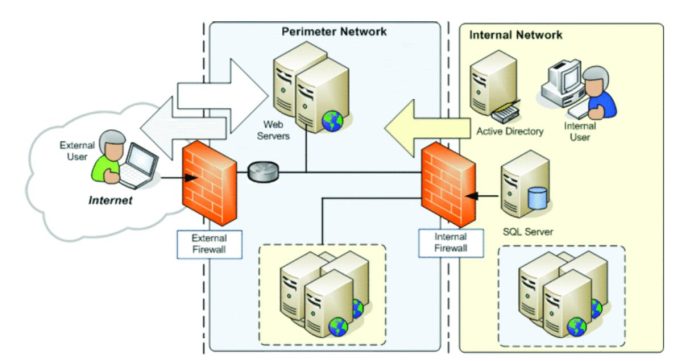A network firewall is a security feature that controls the amount of traffic that can enter or leave your system. This firewall comprises a series of rules which control which data can access your system. Some of these rules include which ports can be accessed.
Stateful Firewalls Increase Usability.
Stateful network firewalls are a type of firewall that keeps track of active connections on a network and analyzes each data packet in isolation. These firewalls are most commonly found in modern networks and offer improved usability and configuration. They do this by adding entries to a “state table” that tracks all connections and their state. Stateful network firewalls require more memory and processing power than packet filters because they need to maintain their tables and parse the access list. They also assume that packet information can be trusted. In addition, stateful network firewalls increase usability by not requiring a server to store stateful configuration information and also save system resources. Stateful devices can also handle multiple connections simultaneously, enabling multiple users to use them without slowing down the system.
Expand Access Control Granularity
A network firewall in computer networks can be a useful tool for organizations to expand access control granularity. By analyzing network metadata and creating semi-automatic rules for network access control, NIL can help organizations manage access control and security. Traditionally, network firewalls have used log parsing to generate rules for network access control, but this approach can generate huge rulesets and unwanted, risky, or suboptimal rules. Using NIL ensures that rulesets are optimally sized and delivered to devices in scope. Access control lists help network administrators organize traffic and control users with greater granularity. These lists can also improve network security. Access control lists contain one or more entries that specify a specific user, group, or role. The access privileges of each user are specified with a string of bits called an access mask.
Block Malicious Traffic
Network firewalls are a great way to protect your network from malicious traffic. They analyze incoming and outgoing data to determine if it is legitimate or malicious traffic. They also block traffic that originates from unauthorized IP addresses or websites. Once these are detected, the firewall will notify the end user and block the traffic. There are many different kinds of network firewalls. Different types of firewalls are designed to block different types of traffic. These firewalls come in different shapes and sizes and can help protect your organization against malware. The type of firewall you use will depend on your needs and your budget. Some firewalls are free of charge, while others are paid per month. Another type of network firewall is the application layer firewall. This type of firewall works by examining the payload of packets to detect malicious code disguised as a valid request. They provide a more advanced level of protection than packet-filtering firewalls. Application layer firewalls require a proxy server to operate. They also force all sessions through an intermediary, which can help protect your network. Firewalls are the first line of defense against cyberattacks. They block unauthorized traffic before it can even get into your network. They also protect your data from leaks that result from insider attacks and malware. Although they can’t completely prevent malware from entering your network, they can minimize the risk of infection.











